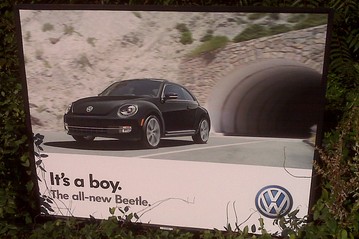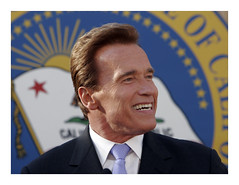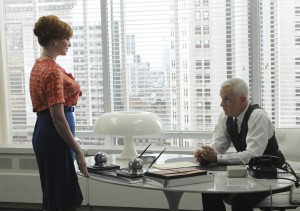“It’s A Boy” And “Not For Women”
Ad makers still don’t know how to appeal to men without pushing women away.
Volkswagen is going after men for the new version of the VW Beetle. The company found out the previous incarnation of the car had more female buyers than male ones. So, to make the new Beetle appeal to men, they say the car is “a boy.”
In the commercial for their low-calorie soda, the makers of Dr. Pepper Ten say it only has “ten manly calories” and the tag line is that “It’s not for women.”
Articles about the car and the soda point out that the conventional wisdom is that men won’t buy those products if they think the cars are for women or the drink doesn’t “seem macho enough.”
Maybe, but there must be a way to appeal to men without becoming that little boy who writes “no girls allowed” on his bedroom door. The Beetle ad is trying too hard: “This car isn’t girly,” implies the ad. Dr Pepper Ten tries to be so macho, I wonder if they considered infusing the drink with testosterone, too.
It doesn’t have to be this way. The Old Spice Guy doesn’t do this. Commercials for the body wash are technically aimed at women, but they still need a macho stamp of approval for men to use it. And by appealing to both men and women, the Old Spice Guy ads don’t exclude anything feminine to prove how masculine it is.
Leave your thoughts in the comments section below.
Photo credit: Jonathan Welsh/Wall Street Journal.


